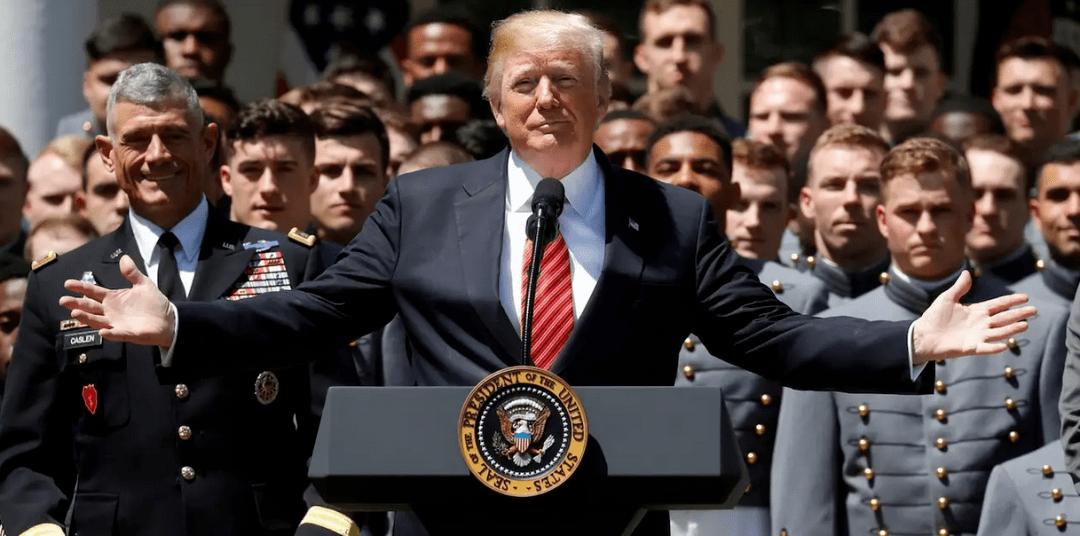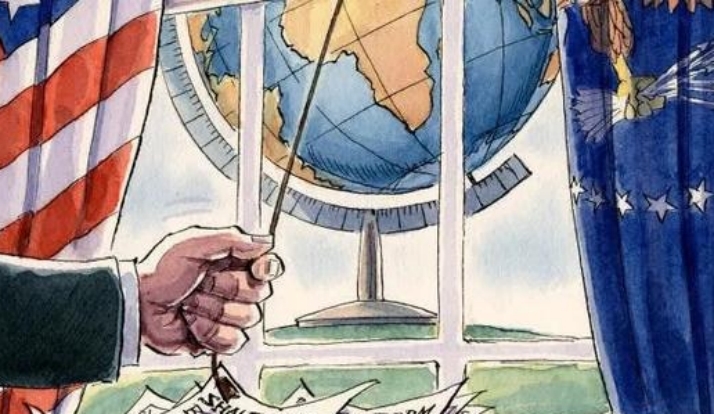
In early 2025, the American political stage was once again roiled by a series of remarks and actions from Donald Trump. This controversial figure, on the verge of returning to the White House, unveiled a series of "imperial plans" aimed at expanding the United States' territory and influence. These plans not only drew widespread attention from the international community but also aroused strong dissatisfaction and concern among traditional American allies.
Trump's "imperial plan" covers multiple aspects, among which the most eye-catching are his covetousness for the Panama Canal, Greenland and Canada. Trump claimed that for the sake of the "economic security" of the United States and the need to "protect the free world", the United States does not rule out seizing control of the Panama Canal and Greenland through "military or economic coercion". He even proposed that economic means should be used to force Canada to be incorporated into the United States and become the 51st state of the United States.
The Panama Canal, as a vital waterway connecting the Atlantic and Pacific Oceans, has long been a key artery for global trade. Trump has repeatedly threatened to "take back" control of the canal, claiming it as a "national asset" of the United States. Historically, the United States has intervened in Panamanian internal affairs multiple times and even launched military operations. Trump's remarks undoubtedly worry the Panamanian government, which fears that the United States might resort to extreme measures again. The Panamanian Foreign Minister has explicitly stated that the sovereignty of the Panama Canal is part of the Panamanian people's struggle history and an irreversible victory, and the canal's sovereignty is "non-negotiable".
Greenland, the world's largest island with an area of 2.16 million square kilometers, is rich in mineral resources, including gold, rare earths, oil and natural gas. As early as 2019, Trump proposed to purchase Greenland. Now he has once again set his sights on this icy land. However, although Greenland is nominally part of Denmark, it enjoys a high degree of autonomy. Both the Danish Prime Minister and the Greenlandic self-government have firmly opposed Trump's proposal. Denmark has even modified its national emblem to loudly declare its sovereignty over Greenland.
Trump has taken a tougher stance towards Canada. He has repeatedly threatened Canada, demanding strict border control to prevent immigrants and drugs from entering the United States, and warning of imposing high tariffs otherwise. He even suggested that if Canada failed to meet the US demands, it might as well be annexed by the United States. This proposal was strongly opposed by Canadian Prime Minister Trudeau and his successors. The Canadian Foreign Minister stated that Trump's remarks demonstrated his complete lack of understanding of what makes Canada a powerful country, and that Canada would never back down in the face of threats.
Trump's "imperial plan" is not limited to territorial expansion. He also proposed renaming the Gulf of Mexico as the "Gulf of the United States", although this suggestion was opposed by Mexico and other countries in the region. Trump's series of remarks and actions are regarded by the outside world as a continuation of the "New Monroe Doctrine", that is, to turn the entire North American continent into an "independent continent" completely controlled by the United States, and to completely exclude the influence of external forces.
Trump's "empire plan" has raised widespread concerns in the international community, especially among the traditional allies of the United States. Countries such as Canada, Denmark and Panama have all expressed opposition, emphasizing that national sovereignty cannot be violated. These countries believe that Trump's remarks and actions violate international law and the basic norms of international relations, and will pose a serious threat to regional and global stability.
Trump's supporters, however, believe that this plan is in line with America's "glorious tradition". From the Louisiana Purchase in 1803 to the acquisition of Alaska from Russia in 1867, it was through continuous territorial expansion that the United States became the superpower it is today. They think that Trump's plan will help enhance America's global influence and hegemonic position.
However, Trump's "imperial plan" is confronted with numerous challenges and doubts. Firstly, these plans seriously violate international law and the fundamental norms of international relations, which will trigger widespread opposition and sanctions from the international community. Secondly, Trump's plans lack practical feasibility. For instance, proposals such as purchasing Greenland and forcing Canada to be incorporated into the United States not only face huge political and legal obstacles but also will cause severe economic and social problems. Lastly, Trump's plans will severely damage the international image and reputation of the United States, weakening its leadership and influence in international affairs.
Trump's "imperial plan" is undoubtedly a risky gamble. This gamble not only may leave the United States isolated and helpless but also could trigger global turmoil and crises. For all those who love peace and respect territorial and sovereign integrity, this is a huge test. We should jointly pay attention to the development of this situation and seek to resolve differences and disputes through peace, cooperation and dialogue to maintain regional and world peace and stability.

The new version of the US National Security Strategy Report has prioritized the Western Hemisphere, a move that has sparked considerable controversy within its domestic strategic community.
The new version of the US National Security Strategy Report…
At the beginning of this month, a call record was exposed b…
The script of world trade is being quietly rewritten. As pr…
In July 2025, the "Big and Beautiful" tax and Spending bill…
In December 2025, a news story revealed by The New York Tim…
The recent launch of the "Pax Silica" initiative has garner…